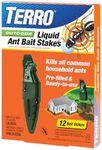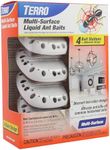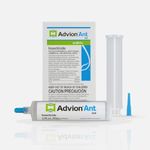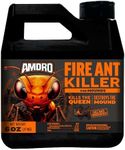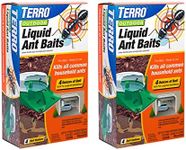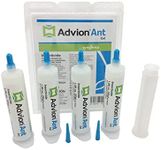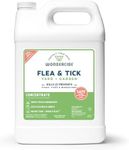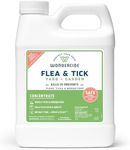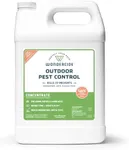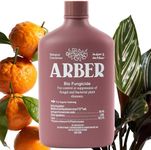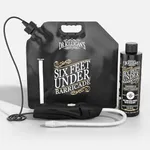Buying Guide for the Best Ant Killers
Choosing the right ant killer can be a bit overwhelming given the variety of products available. The key to selecting the best ant killer for your needs is understanding the different types of products and their specific features. This will help you make an informed decision based on your particular situation, such as the type of ants you're dealing with, the location of the infestation, and any safety concerns you might have. Here are some key specifications to consider when choosing an ant killer.Type of Ant KillerAnt killers come in various forms, including baits, sprays, granules, and gels. Baits are effective for long-term control as ants carry the poison back to their colony. Sprays are good for immediate results and killing ants on contact. Granules are useful for outdoor use and creating a barrier around your home. Gels can be applied in cracks and crevices where ants travel. Choose the type based on whether you need immediate results or long-term control, and where the ants are located.
Active IngredientsThe active ingredient in an ant killer determines its effectiveness and safety. Common active ingredients include borax, fipronil, and hydramethylnon. Borax is a natural option and is generally safe for use around pets and children. Fipronil and hydramethylnon are more potent and effective for severe infestations but may require more caution. Consider the severity of your ant problem and any safety concerns when choosing an active ingredient.
Target Ant SpeciesDifferent ant killers are formulated to target specific species of ants, such as carpenter ants, fire ants, or sugar ants. Identifying the type of ant you are dealing with can help you choose a product that is specifically designed to be effective against that species. If you are unsure, look for a broad-spectrum ant killer that targets multiple species.
Indoor vs. Outdoor UseSome ant killers are designed for indoor use, while others are meant for outdoor use. Indoor ant killers are typically less toxic and safer for use around pets and children. Outdoor ant killers are often more potent and can create a barrier to prevent ants from entering your home. Determine where the majority of your ant problem is located and choose a product that is suitable for that environment.
Ease of ApplicationThe ease of application can vary between different ant killers. Sprays and gels are generally easy to apply directly to the affected areas, while baits and granules may require more strategic placement. Consider how comfortable you are with applying the product and whether you need a quick and easy solution or are willing to spend more time for a more effective long-term result.
SafetySafety is an important consideration, especially if you have pets or children. Some ant killers are made with natural ingredients and are safer for use in households with pets and children. Others may contain more potent chemicals that require careful handling and application. Always read the label and follow the instructions to ensure safe use. If safety is a major concern, opt for products with natural ingredients or those specifically labeled as safe for use around pets and children.


